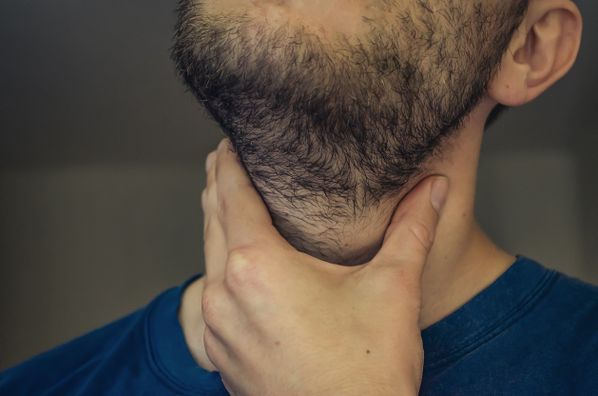Esophageal Cancer is a disease that results from cancer cells forming in the esophagus — the muscular tube that carries food from the mouth to the stomach.
There are two types of Esophageal Cancer:
- Adenocarcinoma - caused by long standing gastroesophageal reflux disease (GERD). Adenocarcinoma is increasing at a faster rate than any other cancer in the U.S.
- Squamous Cell Carcinoma ‑often linked to tobacco usage and alcohol consumption
How does Esophageal Cancer begin?
Esophageal cancer is more likely to occur in patients who have suffered from persistent heartburn or GERD. GERD results when stomach content including food and liquids (acid & bile) leak upwards into and irritate the lining of the esophagus, this may also be referred to as reflux disease.
Over time, in approximately 10 percent of heartburn sufferers, the lining of the esophagus will change and try to adapt to long term exposure to acid and become tougher and less sensitive which masks chronic heartburn symptoms. This reduction in heartburn sensation can indicate early signs of precancerous changes in the esophagus. When pre-cancerous cells form in the esophagus, the condition is referred to as Barrett’s esophagus. Patients who have Barrett’s esophagus have a 1 in 20 chance of developing Esophageal Cancer.
Risk factors for development of Barrett’s esophagus include:
- Over 50 years of age
- Male gender
- Caucasian
- High BMI (Obese)
- History of Smoking
- Family History of Esophageal Cancer
*Barrett’s Esophagus can affect other races and genders.
Facts about Heartburn and Esophageal Cancer
- The fastest increasing type of esophageal cancer is caused by gastroesophageal reflux disease (GERD).
- About 15 million Americans experience heartburn every day.
- Approximately 3 million Americans currently have Barrett’s esophagus
- Heartburn sufferers are twice as likely to develop precancerous Barrett’s esophagus.
Early detection of Barrett’s esophagus is your best defense against Esophageal Cancer. Minimally invasive outpatient procedures can eliminate this condition and prevent cancer from progressing. Do not ignore your chronic heartburn.
Consult your doctor if you have any of the following chronic reflux symptoms to discuss a Barrett’s esophagus screening:
- Persistent heartburn or acid reflux (two or more times per week over several weeks)
- Experienced heartburn in the past but symptom have gone away
- Pain or difficulty swallowing
- Regurgitation of food, especially at night
- Sleep Apnea
- Chronic Cough
- Hoarseness of voice
- Chronic Sore throat
- Family history of Barrett’s esophagus or Esophageal cancer
Health Topics:







